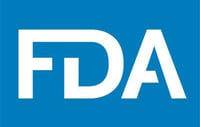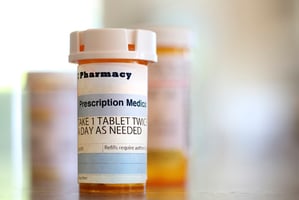There is a wealth of evidence that methylphenidate can improve attention-deficit/hyperactivity...
FDA Approves Once-Daily Nonstimulant for Treatment of ADHD

The Food and Drug Administration (FDA) has approved the selective norepinephrine reuptake inhibitor Qelbree (viloxazine extended-release) for the treatment of attention-deficit/hyperactivity disorder (ADHD) in youth 6 to 17 years of age. The nonstimulant drug, which is to be taken once a day, can be swallowed whole or opened and sprinkled into applesauce.
The efficacy of Qelbree was evaluated in three multicenter randomized, controlled trials. In the first trial, researchers randomly assigned 477 patients with ADHD aged 6 to 11 to receive Qelbree 100 mg, Qelbree 200 mg, or placebo once daily for six weeks. The patients were evaluated using the ADHD Rating Scale (ADHD-RS-5) and the Clinical Global Impression Improvement (CGI-I) scale at the start of the study and again at six weeks. Patients who received Qelbree 100 mg or Qelbree 200 mg experienced a greater reduction in ADHD-RS-5 total scores and improvements in CGI-I scores over the course of the trial compared with those who received placebo. The second trial involved 313 patients with ADHD aged 6 to 11 who were assigned to Qelbree 200 mg, Qelbree 400 mg, or placebo once daily for eight weeks. As seen in the first trial, patients who received Qelbree 200 mg or Qelbree 400 mg experienced greater reductions in ADHD-RS-5 total scores and improvements in CGI-I scores from baseline to the end of the study.
For the third trial, Qelbree was evaluated in patients aged 12 to 17 years: 310 youth with ADHD were randomly assigned to Qelbree 200 mg, Qelbree 400 mg, or placebo once daily for six weeks. As in the trials with the younger patients, these youth also experienced greater reductions in ADHD-RS-5 total scores and improvements in CGI-I scores from baseline to the end of the study.
“This approval offers a novel once-a-day sprinkleable nonstimulant that can be a great option for children and adolescents with ADHD,” Andrew J. Cutler, M.D., a clinical associate professor of psychiatry at SUNY Upstate Medical University, said in a press release from Supernus, maker of Qelbree. (Cutler has received consultant fees from Supernus.)
Qelbree’s label contains a boxed warning that the medication may increase the risk of suicidal thoughts and behaviors. Physicians are advised to monitor patients closely for “clinical worsening and emergence of suicidal thoughts and behaviors, especially during the initial few months of drug therapy, and at times of dosage changes.”
Data from the clinical trials suggest that the medication may induce manic or mixed episode in patients with bipolar disorder and/or increase blood pressure and heart rate. “Prior to initiating treatment with Qelbree, screen patients to determine if they are at risk for bipolar disorder; such screening should include a detailed psychiatric history, including a personal or family history of suicide, bipolar disorder, and depression,” the label cautions. Assessing heart rate and blood pressure prior to initiating treatment as well as when increasing dosages is also advised.
According to the press release, the company plans to make Qelbree available in the United States later this year.
Webinars to Be Held Tonight on Impact of COVID-19 on MH of African Americans
Join APA for a two-part webinar series that will examine strategies and opportunities to improve the mental health of African Americans during the pandemic, while also raising awareness and building trust on the efficacy of the COVID-19 vaccine. The webinars begin at 7 p.m. ET.
Don't miss out! To learn about newly posted articles in Psychiatric News, please sign up here.






